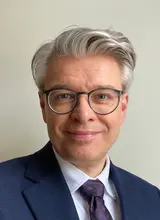Over the next four years, researchers from the Center for Conflict Research (Marburg), the DFG Cluster of Excellence "Africa Multiple" (Bayreuth) and the Center for Political Practices and Orders ("C2PO", Erfurt) as well as from the Arnold Bergstraesser Institute in Freiburg will jointly research how postcolonial hierarchies are reflected in today's conflict dynamics and what conclusions can be drawn for future conflict transformation.
The focus will be on the following topics in particular:
- the significance of postcolonial hierarchies for the emergence and course of conflicts in formerly colonised societies, but also in the societies of former colonial powers,
- the continuities of colonial understandings of peace and security, and
- the possibilities of transforming such continuities by coming to terms with colonial violence.
An important part of the joint work over the next four years is to create a globally accessible virtual encyclopaedia on these topics.
Cross-location exchange is particularly important for the network and will be organised in various formats. The aim is not only to discuss conceptual questions on postcolonial perspectives in peace and conflict research, but also to open up debates from neighbouring academic fields such as Sociology, Cultural and Literary Studies and History. Existing research foci are bundled and further developed in the supra-regional cooperation.
"What is special about this research association is its network structure. The subject areas are not divided between the locations; instead, there is a working group for each subject area in which members of all locations work together. There is also a joint Virtual Graduate School for the scientific employees at all locations, in which they can advance their further qualification in a structured graduate programme. This school is coordinated by PD Dr. Ulrich Franke, who is also involved in the C2PO," says Professor Oliver Kessler. The C2PO speaker heads the project at the Erfurt location together with Professor André Brodocz.
"With the Faculty of Economics, Law and Social Sciences we have already been able to establish three new tenure-track professorships for international politics and conflict research, for international administrative law and international law, and for international and monetary macroeconomics. We established the BA programme "International Relations", which is highly recognised throughout Germany, to successfully participate in the Federal-Länder Tenure Programme for the promotion of young academics, and a joint research professorship for Democratic Institutions in the Global South with the Leibniz Institute of Global and Area Studies Hamburg. Now, the participation in this network with three very high-profile partners again shows that with the Faculty we successfully raised our profile as a location with innovative perspectives on the dissolution of the boundaries of nation-state societies, their legal systems and economies, as well as on the socio-political challenges that go hand in hand with this," notes Professor Brodocz, the former Dean of the Faculty of Economics, Law and Social Sciences.
The competence network is funded by the Federal Ministry of Education and Research (BMBF) with a total sum of almost four million euros. Following the very successful evaluation of German peace and conflict research by the German Council of Science and Humanities, the Ministry had announced funding for research networks to promote and further develop peace and conflict research.


